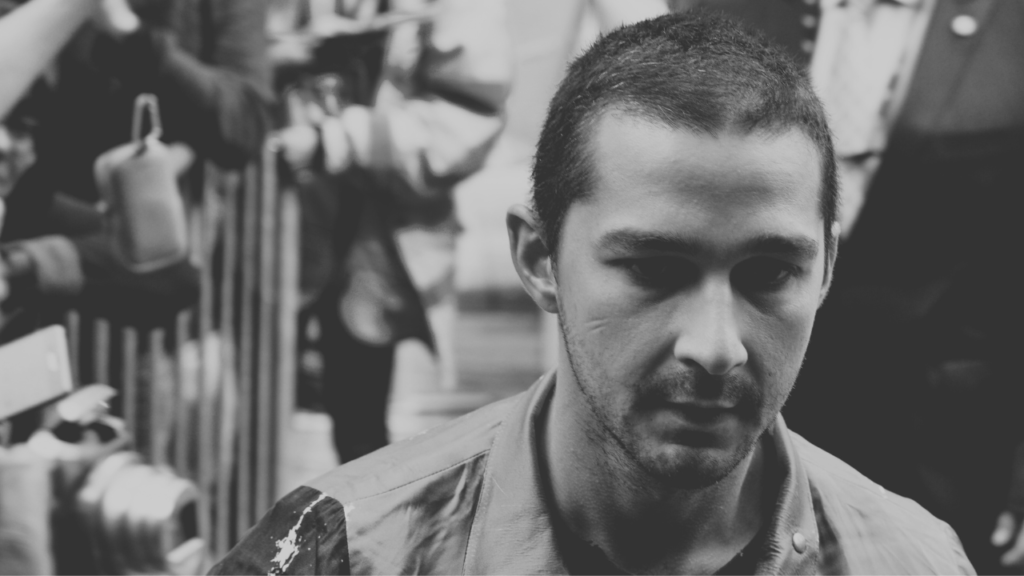In the world of addiction and mental health treatment, understanding the complex relationship between substance abuse and mental illness is crucial. This intricate connection, often referred to as dual diagnosis, is a critical aspect of comprehensive care. At Destination Hope, we recognize the importance of addressing both mental health and addiction in tandem. Our approach is rooted in the belief that effective treatment requires a holistic understanding of an individual’s struggles. One such example of the intersection between mental health and addiction is the story of Shia LaBeouf.
Shia LaBeouf: A Public Battle with Dual Diagnosis
Early Life
LaBeouf’s life, marked by both remarkable success and profound challenges, offers a window into the complex world of addiction and mental health. LaBeouf’s childhood, under the care of his mother Shayna Saide, a visual artist and jewelry designer, and his father Jeffrey LaBeouf, a professional clown, immersed him in an eclectic mix of artistic influence and financial hardship. His parents’ divorce, largely due to financial struggles, left a significant impact on him, leading to a childhood filled with unique challenges and experiences.

LaBeouf’s father’s struggles with drug addiction and a traumatic incident involving his mother at a young age deeply affected him. His father’s time in rehab for heroin addiction and the subsequent abuse LaBeouf faced formed a backdrop for his later struggles with addiction and mental health.
The Highs and Lows
As LaBeouf navigated his successful acting career, starting from a young age with roles in popular TV shows and movies, his personal life remained tumultuous. His relationships, particularly with Mia Goth, whom he met on the set of a Lars von Trier film in 2012, underwent public scrutiny, including a non-legally binding commitment ceremony in Las Vegas and their eventual reconciliation and parenthood.
His relationship history also includes a troubling period with FKA Twigs, leading to a lawsuit against him for sexual battery, assault, and emotional distress. These incidents have significantly impacted his public image and career, leading to a hiatus from acting and a focus on treatment and recovery.
Shia LaBeouf Faces His Demons
LaBeouf’s admission of his struggles with PTSD, stemming from childhood trauma and violence, sheds light on the root causes of his addiction and behavioral issues. His own violent reactions, including an incident involving his mother, reveal the deep-seated impact of his early experiences.
His arrest in Savannah for public intoxication, followed by court-ordered rehab, were pivotal in his journey towards understanding and addressing his mental health and addiction issues.
A Turning Point
In his candid discussion on Jon Bernthal’s Real Ones podcast, LaBeouf signified a significant shift in perspective. He acknowledged the harm he caused and expressed a desire to own his actions and learn from his mistakes. His comparison of his public outbursts to John McEnroe’s, however, highlighted a crucial difference: McEnroe’s expressions of rage were calculated, while LaBeouf’s were uncontrolled and damaging.
Shia LaBeouf’s Ongoing Recovery Journey
LaBeouf’s experiences, from his complex childhood to his turbulent adult life, demonstrate the multifaceted nature of addiction and mental health struggles. His journey underscores the importance of understanding the underlying causes of such issues and the need for comprehensive, empathetic treatment.

The Role of Mental Health in Addiction
Mental health disorders can often fuel substance abuse, as individuals may turn to drugs or alcohol as a form of self-medication. This can create a vicious cycle, where substance abuse exacerbates mental health symptoms, which in turn leads to increased substance use. Understanding this cycle is key to effective treatment.
Addiction is not merely a physical dependence on substances; it is a complex condition that often involves emotional and psychological factors. This understanding is crucial in treating individuals like LaBeouf, whose struggles go beyond mere substance use.
Destination Hope: Pioneering Dual Diagnosis Treatment
We at Destination Hope are dedicated to offering the best possible treatment for mental health and addiction. Our approach to dual diagnosis is comprehensive, focusing on both the mental health aspects and the addiction component.
A Unique Perspective on Recovery
Our staff’s unique perspective, rooted in personal experiences with recovery, offers compassionate and dedicated care. This approach allows us to connect with our clients on a deeper level, understanding their struggles from a place of empathy and experience.
Empowering Clients for Lifelong Recovery
Our program is designed not just for immediate treatment but for lifelong recovery. We equip our clients with the knowledge and tools necessary to continue their journey of growth and recovery, long after they leave our care.
A Peaceful, Nurturing Environment
The environment at Destination Hope is tailored to promote recovery and growth. We offer a peaceful, safe space where individuals can focus on healing and find the courage, strength, and serenity to overcome their challenges.
Taking the First Step: Your Destination for Recovery
If you or someone you know is struggling with addiction and mental health issues, remember that help is available. At Destination Hope, we are dedicated to guiding individuals on their journey to recovery. For more information on how we can help, visit our website at Destination Hope or call us at (954) 302-4269. Take the first step towards a healthier, happier life. Your destination for recovery begins here.

